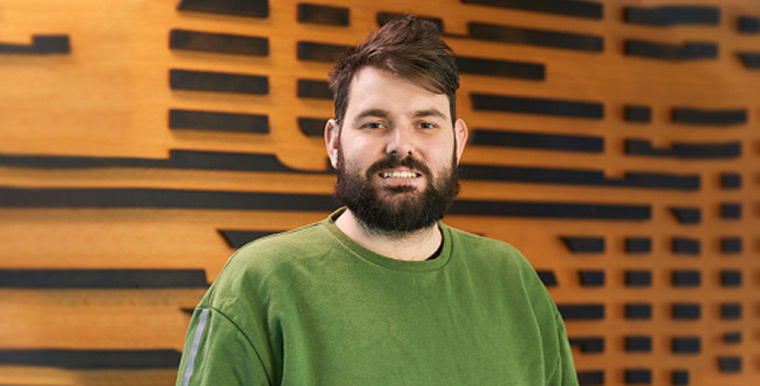News
Reducing uncertainty and increasing confidence in prescribing PrEP
Expanding knowledge and attitudes of healthcare professionals prescribing PrEP is one of the keys to HIV prevention.
 Seventy-one per cent of GP respondents in a recent study reported a 'lack of comfort' prescribing PrEP.
Seventy-one per cent of GP respondents in a recent study reported a 'lack of comfort' prescribing PrEP.
The introduction of pre-exposure prophylaxis (PrEP) to the Pharmaceutical Benefits Scheme in 2018 has been hailed as a ‘game-changer’ in the field of HIV prevention, with Australia seeing a rapid uptake of the drug.
However, reported hesitancy in prescribing PrEP in general practice may come from a lack of knowledge and unfamiliar territory, according to new research.
The Australian Journal of General Practice (AJGP) recently published first-of-its-kind findings of GPs’ knowledge and attitudes of prescribing PrEP, highlighting that 71% of respondents reported a lack of comfort and confidence prescribing, and 60% reported that further education and formalised guidelines could overcome this situation.
Dr Vincent Cornelisse, a GP and sexual health physician involved in PrEP research, previously told newsGP that the most important things for GPs to consider when prescribing PrEP is ensuring they are familiar with current guidelines, to conduct a thorough patient assessment before considering a prescription, and doing follow-ups.
‘The important points are: who do you give it to and who don’t you give it to? What do you need to check before you give it to someone? And what do you need to check on an ongoing basis?’ he said.
Researchers of a new project from UNSW Sydney's Centre for Social Research in Health are hoping to contribute to increased understanding and prescribing of PrEP in the primary care setting, through examining clinicians’ experiences and current attitudes.
‘We’re really hoping to understand the implementation of PrEP in Australia, particularly in terms of GPs as well as sexual health specialists in public health settings ... to find out how to best support the workforce to provide PrEP,’ Anthony KJ Smith, Project Manager and Scientia PhD candidate at the Centre for Social Research in Health, told newsGP.
The project consists of two main components, the first of which is interviews conducted with GPs, nurse practitioners and sexual heath physicians to gather information about their experiences with PrEP.
‘The idea [of this component] is to get a sense of what the experience has been like so far if a GP has prescribed PrEP – are there particular types of patients they found challenging or have they found the idea of PrEP challenging?’ Mr Smith said. ‘And, because there have been some debates around whether PrEP leads to an increase in overall STIs, the question of, HIV rates have gone down, but what about the other STIs?
‘We are curious about how doctors are responding to some of those topics and how that relates to how they talk to the patient in front of them.’
 ‘To get PrEP prescribed you need to see a doctor, so understanding how that interaction happens is crucial,’ researcher Anthony Smith said.
‘To get PrEP prescribed you need to see a doctor, so understanding how that interaction happens is crucial,’ researcher Anthony Smith said.
Gathering these experiences to share with other healthcare professionals potentially prescribing PrEP is aimed to help boost understanding of the drug, but also overcome common stereotypes of prescribing being limited to one population.
‘Some of the preliminary information we’ve received from stakeholders is that although PrEP can be prescribed by any doctor, we’re still seeing a bit of a funnelling effect where only doctors in the urban centres – where there’s usually a higher gay population – tend to be prescribing it,’ Mr Smith said.
‘An understanding of those GPs in the outer-metropolitan or rural/remote areas would also be of value. There’s a lot of excitement with PrEP and, as we’ve seen a lot of success for example, broadly for homosexual and bisexual men who live in the city for whom HIV has reduced, to see that in other populations and other areas, we need to optimise access.
‘And as far as access goes, to get it prescribed you need to see a doctor, so understanding how that interaction happens is crucial.’
The research team hopes to track the perspective of healthcare professionals who have a high caseload of and are confident with PrEP, to then understand their experience with the implementation.
‘We’re also keen to capture those GPs’ perspectives who have only prescribed it a handful of times and may be a bit unsure about the whole thing, or may be optimistic about it but don’t have much of patient base or patient demand for it,’ Mr Smith said.
The second component of the project is story completion, where participants are involved in writing a story in response to a scenario, similar to a clinical vignette, to draw on their social and cultural knowledge to complete it.
Mr Smith hopes the written-story completions will provide a sense of what people think the social norms are of prescribing PrEP.
‘We’re interested in what sort of problems may arise in the scenario, or if it’s fairly easy – the patient always comes away having been prescribed PrEP, or maybe the doctor doesn’t know what to do, so ends up referring them,’ he said.
Sharing these stories and outcomes of studies may contribute to shared knowledge, increased confidence and adopting PrEP prescribing in general practice, but the patient–doctor collaboration also remains a fundamental part to achieving the goal of eliminating HIV, according to Dr Cornelisse.
‘If we are to eliminate HIV transmission, we need to find a way to similarly engage with those parts of the Australian community that are currently not accessing HIV testing and PrEP – GPs are perfectly positioned to help foster such engagement,’ he said.
Login below to join the conversation.
HIV prevention pre-exposure prophylaxis PrEP prescribing sexual health
newsGP weekly poll
Which of the following areas are you more likely to discuss during a routine consultation?